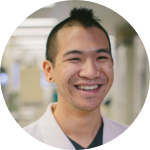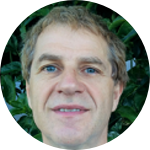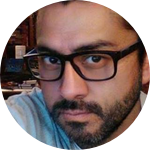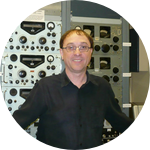About This Project
The high cost of enzymes/proteins used in bio/medical research is a barrier. They are produced in 3 steps: protein growing in cells, lysis and purification. First and last steps are the most costly due to high cost of shaker incubators devices and last step because of reagent costs and chromatography columns costs. We will create a new low cost shaker incubator and a new low cost purification method using magnetic beads. We will test the shaker-incubator design and purification method
Ask the Scientists
Join The DiscussionWhat is the context of this research?
Enzymes/proteins are essential to healthcare, food technology, and agriculture Enzymes are used in food manufacturing, animal nutrition, cosmetics, medication. My research group uses them for genetic engineering. High cost of production of these molecules including High cost per reaction limits their accessibility especially in low cost settings. Some use reagent sharing. We propose a low-cost enzyme/biologics production system with new devices and new purification method.
Our approach uses an Open Source shaker-incubator built using inexpensive available materials yet holding up to high forces needed for protein production.
We replace the expensive traditional chromatography purification process with a reusable magnetic bead method that is capable of high purity yields.
What is the significance of this project?
Biological products, such as enzymes and proteins, can be a large part of a researcher's budget -- in a previous projects, the cost of enzymes was around 20% of our budget. One reason for this is that biologicals are expensive to produce, and inexpensive, DIY, or open source designs are not yet viable. Our method incorporates two new elements into the protein creation process. First, we modify the shaker step, using a combination of fabricated steel parts for durability and 3D printed parts for accessibility and cost efficiency. Second, we implement the magnetic bead separation method currently used to create nucleic acids. This represents a novel use of magnetic separation, and could decrease the cost of this step by 10 times.
What are the goals of the project?
Build a low cost shaker-incubator with that allows remote real time monitoring and control. Test it against a commercial product at 300 RPM for 4 days with e-coli bacteria and measure the optical density. Find and use the best technology for the high strength components required for oxygenating the bacterial culture. For protein purification use a new magnetic method, currently used for nucleic acids. For that, perform genetic engineering to create 4 new genes to produce 4 proteins: pfu-Sso, fu-GFP, BSl, and RT. Design and test the magnetic separation protocol by testing the product head to head with a commercial product. Provide a system that is easy to use, can be extended and use standards such as BioBrick. Finalize with publishing the research on GitHub and as a paper.
Budget
We will be using the existing wet-lab which has most of the apparatus necessary for performing the protocols. Many of the tools and machines are already available. Most of the initial prototyping and unit validation work has been started and some was even completed.
Endorsed by
 Project Timeline
Project Timeline
August 15: Mechanical, electronic, software and bio design and create GitHub project. Send sequences for synthesis. Procure plasmids and reagents.
September 15: Orbital shaker prototype. Perform cloning.
October 15: Finalize shaker incubator and test at 300 RPM for 4 days. Perform iterative improvements.
January 15: Fully document project and protocols on GitHub. Publish test results. Send plasmids and hardware to independent labs for independent testing.
Continue improvements and docs.
Jul 15, 2023
produce a testable orbital shaker
Sep 13, 2023
Project Launched
Sep 15, 2023
produce a testable shaker incubator
Oct 11, 2023
Project Launched
Oct 26, 2023
produce a testable plasmid
Meet the Team
Affiliates
Team Bio
A multidisciplinary team composed of biology experts,mechanical engineers, electronic engineers, and software programmers. All members have already allocated resources for completion of the project. This team has a proven track record on meeting timeline like in the recent JOGL grant project. Most of the members have experience with leading organizations, are enthusiastic and are in for the long run. They see this as a self rewarding opportunity to make a significant contribution.
Adrian Filips
Adrian is passionate and committed to multidisciplinary Open Source research projects that can make a difference in today's world. He believes in open, inclusive citizen science because the currently allocated resources are not sufficient to tackle current challenges. Adrian is a firm believer in the power of science to solve world problems.
He has a multidisciplinary background with experience and high education in engineering, computers and molecular biology.
He can model and create Fusion360 add-ins, operate a CNC, a laser cutter, design and populate a dedicated PCB, code a micro-controller or the cloud, pour a gel, program an Opentron, design a primer, in-silico design, align sequences, create derivative plasmids stare at DNA sequences for hours to name some of his skills.
As part of his passion and convictions he designed, built, tested and used a significant number of low cost, open source, essential molecular biology devices.
He participated in research with the Children Medical Research Institute in Sydney. One of the projects where he designed/implemented a new procedure for producing new DNA sequences for transduction drug delivery is published at https://doi.org/10.1016/j.omtm.2018.10.016
He started the Ottawa Bio Science community bio and participated and presented participated in several Biosummits organized by the Canadian Health Department, MIT and JOGL. He is an active member in several relevant organizations dedicated for promotion of open science like GOSH, Helpful Engineering, JOGL, Global Community Biosummit etc.
Currently he works for Environment and Climate Change Canada.
David J. Castillo
Biomedical researcher with extensive experience in the Biophysics of nanomotors, and nanotechnology applications in soft matter. Specialist in molecular microbiology tools and single particle analysis (genomics, molecular biology, optical microscopy, biochemistry, protein engineering, and plant development. Trained undergraduates, graduate students, and postdocs in several scientific research institutions in Mexico, USA, Germany, and Japan, (UNAM, Arizona State University, Max Planck Institute, Osaka University, and Waseda University).
External analyst for environmental assessment in urban ecosystems using multispectral images on UAVs (drones) designed remotely operated biosensors and integration into GIS for environmental modeling, in collaboration with NGOs, civil organizations, and local governments and Environment Secretariats (SEDEMA, CONAFOR, PAOT).
GLYXON Biolabs DIY Biospace for biomaterials. Founder and director
Glyxon Biolabs studies micro-algae, plants, and bacterial models to explore further strategies of atmospheric CO2 sequestration and biopolymers biosynthesis by combining biotechnological approaches and computer-based simulations of ecological dynamics of planktonic ecosystems and bacterial consortia. Our interests include microfluidics; 3D printing cell cultures; biopolymers biosynthetic pathways; simulation of genetic chassis circuits; gene editing and protein engineering in bacterial models and plants; Lab automation using microcontrollers and tailored integrated circuits.
Former Research Scientist at Arizona State University, Biodesign Institute's Center or Mechanism of Evolution, studying single-cell mechanotransduction in bacterial models involved in motility and molecular nanomotors.
He is back in Mexico City, working as director and lead researcher at Glyxon Biolabs, focused in modulation of cell differentiation in unicellular organisms using bacteria, algae and plants.
Raymond Pilon
Raymond Pilon was Chief of Information Technology Services in the Public Service. His expertise spans system design to enterprise architecture. He received the Queen Elizabeth II Jubilee award for development in Information Technology.
Sasha
Software expert with decades of experience writing software for leading companies. Masters in Computer Science. Extremely skilled in engineering, modeling and design.
An amazing maker that participated in many distributed teams and produced open source builds. Specialises in difficult low level programming like C and C++.
Geoffrey Dobbsa
Geoff is an aerospace Mechanical Engineering Manager responsible for many innovative solutions in aircraft, spacecraft, fibre optic components and gasification of domestic garbage. Named inventor on several patents.
Many years experience in building and testing new concepts.
Former co-owner of a sailing boat manufacturer that produced boats using several plastic/resin molding technologies.
Sarah Khan
Sarah Khan, a biologist-artist from Peshawar, Pakistan.She was a teacher assistant for the How to grow almost anything course organized by MIT media lab.
Additional Information
Some of the preliminary activities like draft designs, and cloning information are already started. This gives us a real a chance of completing this project in a record time. We will reuse a commonly found recycled container for the incubator. to save cost.
Additional references and draft design and protocol for the genetic engineering is published at Bio Design.
Project Backers
- 3Backers
- 2%Funded
- $50Total Donations
- $16.67Average Donation





